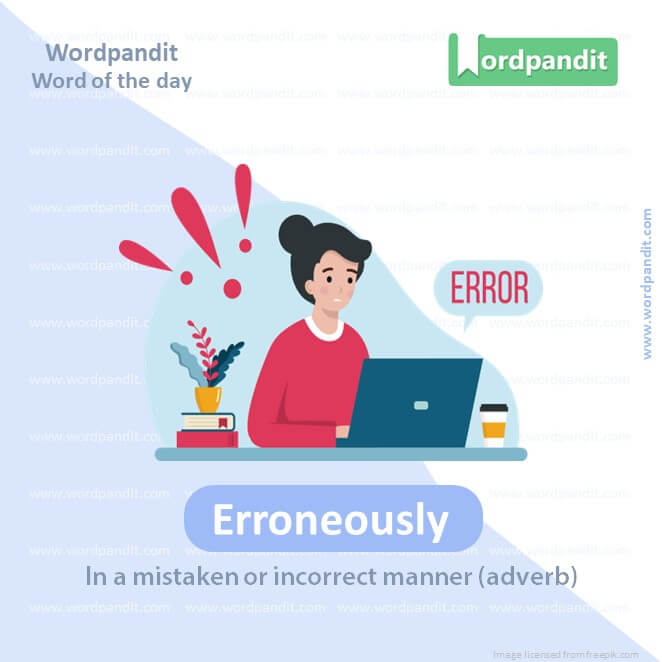Daily Vocabulary Words: List of Daily Used Words
Hi there. Welcome to this special section @ Wordpandit.
Our endeavour here is straightforward: highlighting important daily vocabulary words, you would encounter in The Hindu. This is your repository of commonly used words; essentially, we are posting a list of daily used words. Hence, this has significant practical application as it teaches you words that are commonly used in a leading publication such as The Hindu.
Visit the website daily to learn words from The Hindu.

WORD-1: Congregation
CONTEXT: The death of a fan and the congregation of a large number of fans of both the popular actors together inside the theatres reportedly caused a situation which could have led to a State-wide law-and-order issue.
SOURCE: The Hindu
EXPLANATORY PARAGRAPH: Imagine when you go to a big gathering at school where everyone comes together to listen to the teacher or watch a performance. A congregation is just like that – it’s a group of people who come together, usually in a church, to pray or listen to a religious leader.
MEANING: A gathering or assembly of people, often for religious purposes. (noun)
PRONUNCIATION: con-gre-GAY-shun
SYNONYMS: assembly, gathering, flock, throng, multitude, audience, group
USAGE EXAMPLES:
1. The congregation sang hymns together.
2. Members of the congregation donated food for the needy.
3. The preacher addressed the congregation.
4. The church has a large congregation every Sunday.

WORD-2: Erroneously
CONTEXT: Indian Navy gets warship with space for women officers four months ahead of time” (some editions, October 21, 2023) erroneously said ‘Rear Admiral Sanjay Sadhu is with MDL Chairman-Managing Director Sanjeev Singhal’.
SOURCE: The Hindu
EXPLANATORY PARAGRAPH: Imagine you’re coloring a picture of the sky and you accidentally color it pink instead of blue. That would be an “oops” moment! “Erroneously” is a fancy way of saying “by mistake” or “wrongly”.
MEANING: In a mistaken or incorrect manner. (adverb)
PRONUNCIATION: er-RONE-ee-us-lee
SYNONYMS: mistakenly, wrongly, inaccurately, falsely, incorrectly, improperly, inappropriately
USAGE EXAMPLES:
1. He erroneously believed he had won the game.
2. The document was erroneously filed.
3. I erroneously took your bag instead of mine.
4. The news report was presented erroneously.

WORD-3: Intensify
CONTEXT: It is likely to intensify into a cyclonic storm over the next 12 hours. It is very likely to move north-northeastwards and cross the Bangladesh coast between Khepupara and Chittagong around October 25 evening as a deep depression.
SOURCE: The Hindu
EXPLANATORY PARAGRAPH: Imagine you have a toy that lights up. If you turn up its brightness, it gets super bright! That’s like “intensifying” the light. “Intensify” means to make something stronger or more powerful.
MEANING: To make stronger or more intense. (verb)
PRONUNCIATION: in-TEN-si-fye
SYNONYMS: strengthen, amplify, heighten, boost, magnify, escalate, deepen
USAGE EXAMPLES:
1. The rain began to intensify.
2. Her training will intensify in the weeks before the competition.
3. The colors will intensify when the paint dries.
4. The debate began to intensify among the participants.

WORD-4: Reiterated
CONTEXT: The leaders reiterated their support for Israel and its right to defend itself against terrorism and called for adherence to international humanitarian law, including the protection of civilians.
SOURCE: The Hindu
EXPLANATORY PARAGRAPH: Imagine you’re telling your friend a story, but they didn’t hear you the first time, so you tell it again. “Reiterated” means to say or do something again, to make sure it’s clear.
MEANING: To say or do again, especially for emphasis or clarity. (verb)
PRONUNCIATION: ree-IT-er-ay-ted
SYNONYMS: repeat, restate, echo, renew, reemphasize, recap, replay
USAGE EXAMPLES:
1. She reiterated her point to make sure everyone understood.
2. The teacher reiterated the instructions.
3. “I really mean it,” he reiterated.
4. The company reiterated its commitment to customer satisfaction.

WORD-5: Unanimously
CONTEXT: to the credit of the Court, it directed, unanimously, that same-sex couples have to be protected from any harassment.
SOURCE: The Hindu
EXPLANATORY PARAGRAPH: Imagine all your friends picking the same ice-cream flavor. Everyone agrees! “Unanimously” means that everyone involved agrees on something without any disagreement.
MEANING: In complete agreement; with no one dissenting. (adverb)
PRONUNCIATION: yoo-NAN-i-mus-lee
SYNONYMS: universally, uniformly, consistently, without exception, wholeheartedly, entirely, across the board
USAGE EXAMPLES:
1. The proposal was unanimously approved.
2. The team unanimously decided on the game plan.
3. The jury voted unanimously.
4. All members unanimously supported the new policy.
WORD-6: Legitimacy
CONTEXT: A relationship less than marriage is not considered by society to have the same legitimacy.
SOURCE: The Hindu
EXPLANATORY PARAGRAPH: Imagine you have a special ticket to enter a playground. If your ticket is real and allowed, then it’s legitimate! “Legitimacy” talks about something being proper, real, and acceptable.
MEANING: The quality of being legal, proper, or genuine. (noun)
PRONUNCIATION: leh-JIT-i-muh-see
SYNONYMS: validity, authenticity, lawfulness, legality, genuineness, rightful
USAGE EXAMPLES:
1. The legitimacy of the election was questioned.
2. He had documents proving the legitimacy of his claim.
3. There were concerns about the legitimacy of the procedure.
4. The legitimacy of the new policy was widely accepted.
WORD-7: Jurisprudence
CONTEXT: the Court says that we cannot use foreign jurisprudence in the case of legal issues relating to marriage, despite the fact that in Surpriyo Chakraborty, the Court has introduced the doctrine of intimate association borrowed from the jurisprudence developed in the United States.
SOURCE: The Hindu
EXPLANATORY PARAGRAPH: You know how rules help us decide what’s right and wrong? “Jurisprudence” is like that, but for laws. It’s a big word that talks about understanding and studying laws.
MEANING: The science or philosophy of law. (noun)
PRONUNCIATION: joo-ris-PROO-dens
SYNONYMS: legal theory, law, legal philosophy, legal science, judicial studies
USAGE EXAMPLES:
1. She studied jurisprudence at the university.
2. Modern jurisprudence has evolved over the years.
3. The professor has written several books on jurisprudence.
4. Jurisprudence helps in understanding the complexities of the legal system.
WORD-8: Alimony
CONTEXT: over the phone while returning from Rajasthan along with his family members that the in-laws and her husband have promised to give alimony in the divorce case before the court.
SOURCE: The Hindu
EXPLANATORY PARAGRAPH: Imagine if two grown-ups decide they don’t want to be married anymore. Sometimes, one of them might need to give money to the other to help out. That money is called “alimony”.
MEANING: Money that one former spouse must pay to the other after separation or divorce. (noun)
PRONUNCIATION: AL-i-moh-nee
SYNONYMS: maintenance, support, financial assistance, spousal support, allowance, settlement
USAGE EXAMPLES:
1. He was ordered to pay alimony to his former wife.
2. The court decided the amount of alimony she would receive.
3. Alimony payments were made monthly.
4. The agreement specified the duration of alimony payments.
WORD-9: Prolonged
CONTEXT: He pointed out that the partners had successfully prolonged the issue for 18 long years by filing petitions after petitions to delay the payment of statutory dues.
SOURCE: The Hindu
EXPLANATORY PARAGRAPH: You know how sometimes playtime feels too short and you wish it could last longer? If something is “prolonged”, it means it’s stretched out or made to last a longer time.
MEANING: Extended to a greater length in time or duration. (adjective)
PRONUNCIATION: pro-LONGED
SYNONYMS: extended, lengthened, protracted, stretched, elongated, drawn-out, continued
USAGE EXAMPLES:
1. The project faced a prolonged delay.
2. She had a prolonged illness.
3. The negotiations were prolonged over several weeks.
4. We had a prolonged discussion about the issue.
WORD-10: Stemming
CONTEXT: Mr. Yunus lost the court battle stemming from regulatory steps.
SOURCE: The Hindu
EXPLANATORY PARAGRAPH: Imagine a plant. It grows from its stem, right? “Stemming” is like that. It means something that starts or comes from a particular thing or place.
MEANING: Originating or caused by; to arise from. (verb)
PRONUNCIATION: STEM-ing
SYNONYMS: arising, deriving, springing, emerging, originating, evolving, proceeding
USAGE EXAMPLES:
1. The river’s pollution is stemming from factory waste.
2. The disagreements are stemming from old conflicts.
3. New ideas are stemming from our brainstorming sessions.
4. The traffic jam was stemming from a major accident on the highway.
vocabulary tricks
The proficiency of a language is often determined by the breadth of vocabulary. To effectively communicate, one must constantly expand their vocabulary. Many lean on ‘vocabulary tricks’ to speed up this process, enabling instantaneous recall and usage of new words. However, as these strategies require a methodological approach, the question becomes: how should vocabulary tricks be effectively learned?
The learning process involving vocabulary tricks commences with the practice of contextual reading. Engulfing oneself in a wide range of texts, from novels to scientific articles, presents new words in various contexts. This provides an understanding of their natural usage and subtler nuances. More importantly, it provides space for the application of the first trick – the Guessing Trick. This vocabulary trick forces the learner to deduce the meaning of the novel term based on its use in the text, sharpening linguistic intuition.
To cement new words, vocabulary tricks often suggest making personal connections. For instance, the Visualisation Trick is connecting visual images related to the word’s meaning. A vivid image associated with a word tends to stick longer in our brains, ensuring quick recall.
Yet another amongst clever vocabulary tricks is the Mnemonic Trick. Through this, learners construct an acronym or sentence using the new words. This trick involves more creativity and unique affiliations with the words, establishing stronger recall links.
Lastly, the Root Analysis Trick allows you to dissect unfamiliar words and identify parts you recognize – roots, prefixes, or suffixes. This vocabulary trick adds a new layer of understanding, making it easier to remember and recognize similar words.
However, the effectiveness of vocabulary tricks relies on their implementation and consistent usage. While they are dynamic tools, their absorption must be passive and continual. It is crucial, therefore, to incorporate these vocabulary tricks in your daily routine to get the most out of them. In the blink of an eye, words that once seemed alien become familiar friends. Hence, mastering these vocabulary tricks is the key to unlocking an expansive vocabulary and refining language proficiency.










